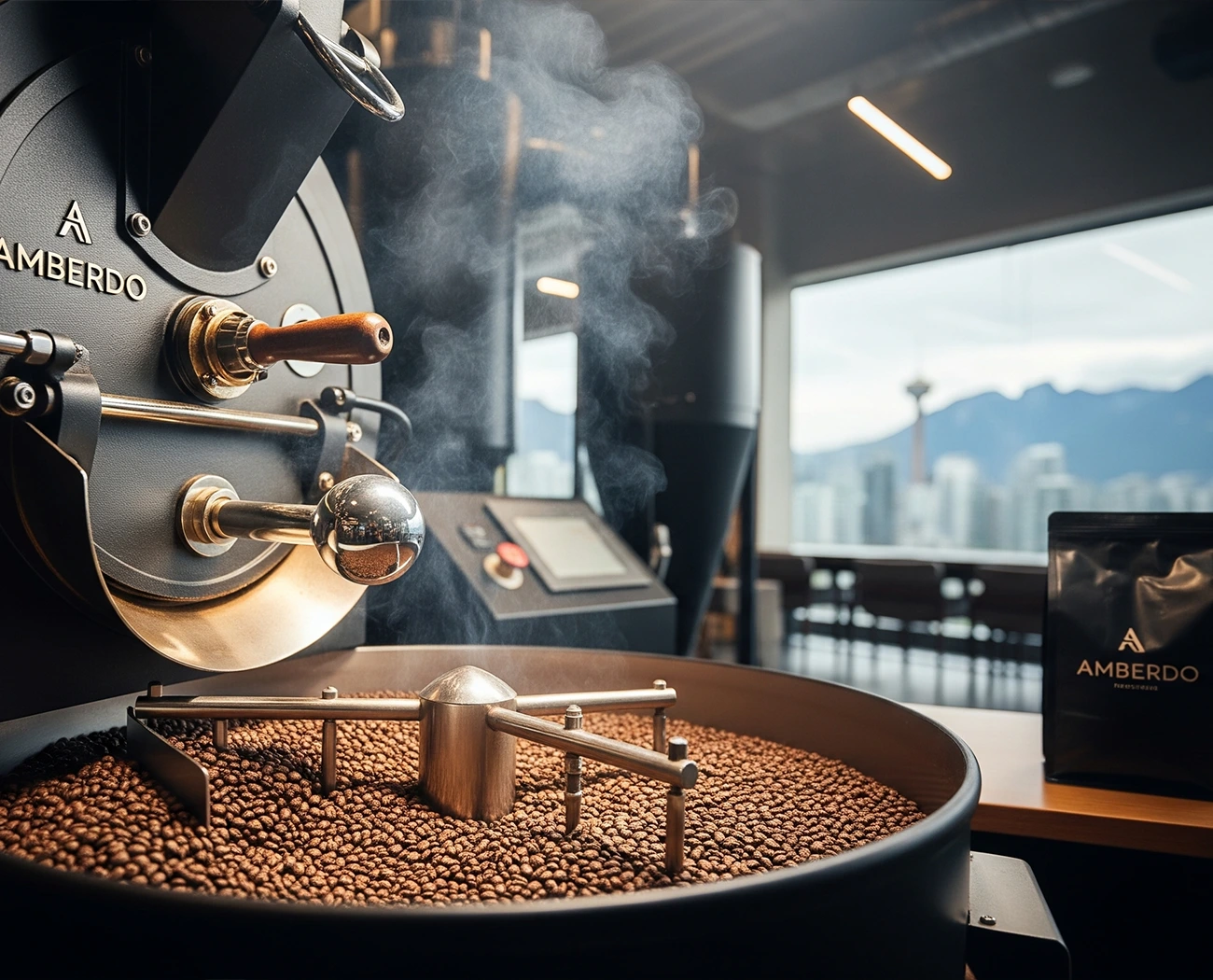
The Ultimate Guide for Coffee Lovers
Have you ever dreamed of turning your love of coffee into a career? Whether you want to work in your favorite local café or eventually open your own coffee shop, becoming a barista is the perfect first step into the world of specialty coffee. In this complete guide, you’ll learn not only the basic steps to become a barista, but also get insider tips, industry insights, and a peek into real-life experiences in Canadian cafés.
What Exactly Does a Barista Do – And Why Is Their Role So Important?
A barista is not just a person who pushes buttons on a coffee machine. In today’s specialty coffee world, a barista is a skilled professional who brings together technical precision, creative expression, and human connection.
Here’s what makes the role of a barista essential in any café:
Technical Expertise
- Mastery of espresso extraction, grinder calibration, and milk texturing
- Understanding coffee ratios, water temperature, and brewing science
- Maintaining clean, food-safe environments with consistency
Artistic Presentation
- Creating beautiful and consistent latte art
- Balancing flavor, temperature, and texture for every drink
- Innovating with seasonal or signature beverages
Human Connection
- Making customers feel seen, heard, and welcome
- Remembering regulars’ orders and offering thoughtful service
- Creating a space where people feel at home
Business Impact
- A great barista increases customer loyalty
- Their drink quality and attitude directly impact reviews and return visits
- In small cafés, they often play roles in inventory, training, or even branding
In short, a barista is part technician, part artist, part storyteller — and often the reason a customer returns. Without skilled baristas, cafés are just coffee machines and empty chairs.

Why Choose a Barista Career in Canada?
Canada has one of the fastest-growing café cultures in North America. Here’s why barista careers are trending:
- High Café Density
- Cities like Vancouver, Toronto & Montreal are filled with third-wave coffee shops
- Growing Demand
- The rise in specialty coffee = more skilled baristas needed
- Work Flexibility
- Part-time, full-time, and seasonal roles available
- Immigration Pathways
- Some barista roles support LMIA and work visa applications
- Cultural Experience
- Great way for newcomers to improve language & people skills
Do You Need Training to Be a Barista?
You don’t need a college degree, but barista training gives you a strong advantage. Many employers prefer candidates who have taken at least one beginner course or have some café experience.
Key Skills Employers Look For:
- Espresso extraction & dosing
- Milk steaming & latte art
- Grinder calibration
- Pour-over & manual brewing
- Cleanliness and food safety
- POS operation & multitasking
- Friendly communication with customers
A Step-by-Step Guide for Aspiring Coffee Professionals
Becoming a barista isn’t just about making coffee—it’s about mastering a craft, creating memorable experiences, and becoming part of a vibrant global culture. Whether you’re aiming to land your first café job or dreaming of becoming a specialty coffee expert, here’s a clear step-by-step guide to help you on your journey.
Step 1: Start With Passion and Curiosity
Every great barista begins with a love for coffee. Start exploring by:
Brewing different types of coffee at home (French press, pour-over, AeroPress, etc.)Watching YouTube tutorials and barista vlogs to learn brewing methods and equipment handling.
Following experienced baristas, coffee roasters, and cafés on platforms like Instagram and TikTok for daily inspiration and techniques.
Reading books or blogs about coffee origins, roasting processes, and espresso science.
💡 Tip: Start a coffee journal to track different beans, brew methods, and your tasting notes.
Step 2: Take a Barista Training Course
Formal education helps you understand the core techniques and safety practices:
Join a short-term course (online or in-person) that covers espresso extraction, milk steaming, grinder calibration, and basic café workflow.
Look for courses offered by specialty coffee schools or roasters—some even offer certification.
Learn about hygiene standards, food safety protocols, and customer service basics.
💡 Tip: Ask local cafés if they host in-house workshops or partner with training programs.
Step 3: Land Your First Café Job
It’s time to put your knowledge to the test:
Apply at local independent cafés, coffee chains, bakeries, or hotel coffee bars. Entry-level barista positions often require no prior experience.
Be honest about your skill level but show your eagerness to learn and grow.
Prepare a simple CV and cover letter that highlights your passion for coffee and customer service.
💡 Tip: Visit cafés in person and express your interest face-to-face—it leaves a strong impression.
Step 4: Master the Craft on the Job
Real growth happens behind the bar:
Observe experienced baristas closely, ask questions, and be open to constructive feedback.
Learn to multitask under pressure—making drinks, cleaning stations, and engaging with customers simultaneously.
Improve your milk frothing, espresso pulling, and workflow speed gradually.
Explore coffee tasting (cupping), different roast profiles, and equipment maintenance.
💡 Tip: Set goals, like learning one new drink or latte art style each week.
Step 5: Build Your Portfolio and Brand
As your skills grow, so should your professional presence:
Start practicing latte art daily and post your creations on Instagram or TikTok to showcase your progress.
Attend local or virtual coffee events, latte art throwdowns, or workshops to network with other baristas.
Build a simple portfolio with photos, videos, or even a blog where you document your journey, favorite beans, and techniques.
Consider getting certified by organizations like SCA (Specialty Coffee Association) for added credibility.
💡 Tip: Invest in a basic coffee setup at home to keep practicing even when you’re off the clock.
Bonus Step: Think Long-Term
Once you’ve built confidence:
Explore career paths like head barista, café manager, coffee trainer, or even opening your own shop.
Learn about coffee roasting, sourcing, and business operations.
Travel and work in cafés around the world—being a barista can be a global adventure.
Real Barista Story: From Beginner to Café Supervisor
“I started as a dishwasher at a small café in Toronto. I watched how the baristas worked and stayed after hours to practice. Within 6 months, I became the main barista and now I train new hires. Learning the art of coffee has changed my life!”
— Emily R., Head Barista at BrewHaus, Toronto
How Long Does It Take to Become a Skilled Barista
| Timeframe | Type |
|---|---|
| Basic on-the-job training | 2–3 weeks |
| Formal barista certification | 1 day to 1 month |
| Pro-level latte art mastery | 6–12 months of practice |
| Management / trainer roles | 1–2 years |
Salary & Career Growth in Canada
| Position | Average Salary (CAD/hour) |
|---|---|
| Entry-Level Barista | $15–$17 + tips |
| Experienced Barista | $18–$22 + tips |
| Head Barista / Supervisor | $22–$26 |
| Café Manager | $25–$30+ |
| Coffee Trainer or Roaster | $30–$40 |
💡 Tips and customer loyalty bonuses can add $2–5/hour on average.
How to Get Hired at a Canadian Café (Even Without Experience)
- Create a basic coffee resume — list any customer service roles, hobbies, or passion for coffee
- Visit cafés in person — introduce yourself with a smile, drop off a resume
- Mention your availability and willingness to learn
- Practice at home and show initiative — employers love curiosity
- Follow up — a polite email 2–3 days later shows commitment
Final Thoughts
Becoming a barista in Canada is more than just a job — it’s an entry into a welcoming, creative, and fast-growing industry. Whether you’re a newcomer to Canada, a student, or a coffee lover looking for a side hustle, there’s a place for you behind the espresso machine.
At Amberdo cafe, we’re always looking for passionate individuals to join our team. If you’re ready to start your barista journey, we’d love to meet you.
Common Questions
1-Can I become a barista with no experience?
Yes! Many cafés offer on-the-job training. Your attitude matters more than experience.
2- Is being a barista a good job for students or immigrants?
Absolutely. Flexible shifts, tips, and fast learning make it ideal for part-timers and newcomers.
3-What’s the difference between a barista and a café server?
A barista makes coffee and manages the espresso machine. A café server might focus more on food service and general duties.







